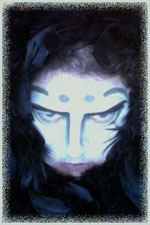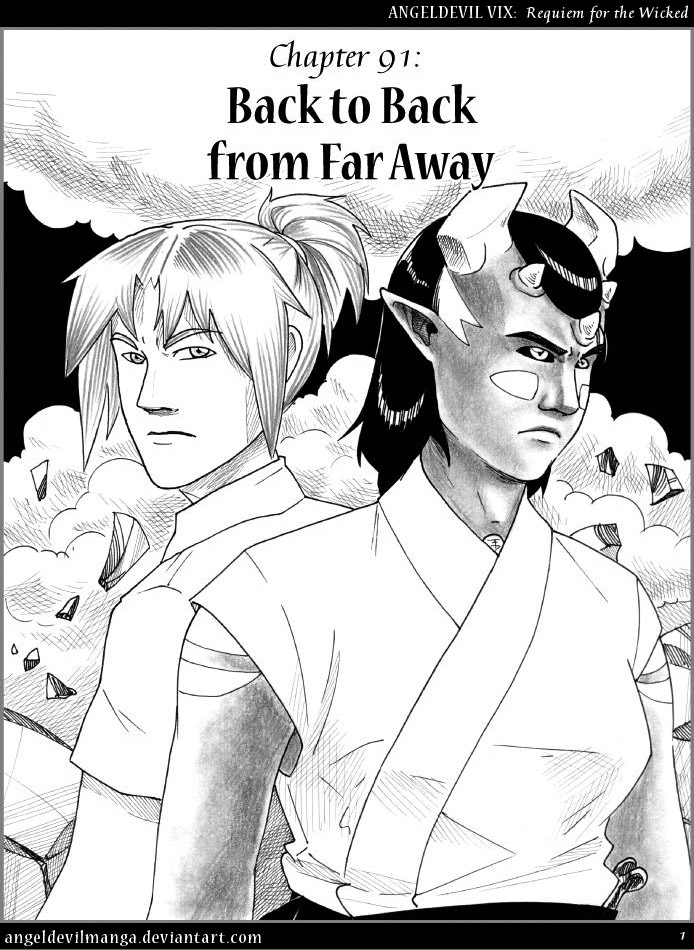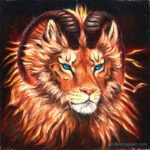 A lot of my friends have asked me, why Goldeen Ogawa? They ask because Goldeen Ogawa is not the name that I first introduced myself with when we met. If you bother to read the About page, you’ll learn that my full name is Grace Goldeen Ogawa, and on the whole I have found it to be a very good name. The reasons why I decided to drop the Grace for publications of my writing (and, to a certain extent, public use; I will answer to “Goldeen” if shouted in a crowded room) are both personal and practical. The personal reason I will not go into here; it is the practical one I want to talk about.
A lot of my friends have asked me, why Goldeen Ogawa? They ask because Goldeen Ogawa is not the name that I first introduced myself with when we met. If you bother to read the About page, you’ll learn that my full name is Grace Goldeen Ogawa, and on the whole I have found it to be a very good name. The reasons why I decided to drop the Grace for publications of my writing (and, to a certain extent, public use; I will answer to “Goldeen” if shouted in a crowded room) are both personal and practical. The personal reason I will not go into here; it is the practical one I want to talk about.
First I want to point out that dropping one’s first name is not without precedent. Flannery O’Connor and Radclyffe-Hall both found (presumably for different reasons) that they preferred not to include their first names on their title pages. In this context Goldeen Ogawa is not unusual at all.
Part of my practical reasoning behind the choice was uniqueness. Grace, while not a common name when I was growing up, has become more popular. And Ogawa, while rare enough in the English speaking world, is quite common in its country of origin (Japan), and any place where those cultures meet (Hawaii) Graces and Ogawas mingle freely.
But Goldeen is fairly rare. It comes from my maternal grandfather’s Jewish family: it probably started with Raphael Goldenstein, a rabbi, became Goldin when the family moved to Ukraine, and the spelling was changed to Goldeen when two brothers, one of them my grandfather’s grandfather, landed in the U.S. at the beginning of the 20th century. I have heard rumors of other Goldeens, but as far as I know, anyone with that name spelled that particular way is somehow related to my great-great-grandfather’s family. Therefore I can confidently say that there are only two Goldeen Ogawas in the world: myself and my brother.
(Why do I get to use my middle name? Because I came first and big sisters can be bossy like that.)
Let me change the subject for a moment and talk about something rather different.
Weeks ago I was reading an author’s blog. I won’t name her because it’s not so much what she meant that got me thinking but her wording, and I feel I’m misrepresenting her by taking those words literally. Anyway, she is a science fiction author, and she was asked what she thought of a new all-female-authors anthology of science fiction short stories. Her response was that, while it seemed like a very nice idea and she wished them the best, science fiction anthologies by women don’t sell.
I remember that last bit, because there is so much wrong with it. There is so much wrong, I don’t think it’s what she meant to say. I think she meant, “In my vast experience I’ve seen many science fiction anthologies by women, and none of them sold well at all, so I am projecting my past experiences onto the future of this new project.”
That I can respect. I have certainly never come across a science fiction anthology by women writers, so I would not be at all surprised to learn they didn’t sell well. But to say science fiction anthologies by women don’t sell is not a descriptive statement. It is prescriptive. It implies: because all the stories were written by women, this anthology won’t sell.
It has been said that the field of science fiction is dominated by men. This was certainly true in the past, and may be so even today if you just look at the ratio of male sci-fi writers to female sci-fi writers, but I have to say that the first writer of real, hard science fiction I think of is Connie Willis. The second is Neal Stephenson, and the third (in her capacity as author of The Lathe of Heaven) is Ursula K. LeGuin. I don’t know about you, but 2 out of 3 does not strike me as being dominated.
Of course there have been many female authors were demeaned and underestimated and under-exposed. There was a time when they could only write by taking on male pen names—or even pretending to be men. I remember reading somewhere that at one time Ursula K. LeGuin was asked to use her initials U.K. LeGuin, instead, because editors felt that having an obviously female author would deter readers.
Of course, today J.K. Rowling is one of the best-selling authors in history, and everyone knows she is a woman.
Today.
Today the game has changed. Partially because of women like Ursula K. LeGuin. Partially because of women like J.K. Rowling. Mostly, I think, because of the many, many other women; all the women throughout history who wrote and published in spite of it all.
It is not so much an uphill battle any more, but there is still a headwind (as my aunt likes to describe it) for women aspiring to roles traditionally occupied by men. Not having written extensively in the field of science fiction, I can’t personally say whether this is the case here. What I can say is that using prescriptive, defeatist language like “science fiction anthologies by women don’t sell” isn’t helping.
I am not asking that everyone be a big raging feminist. I am asking for equality. The first step towards equality is making sure you are not a part of the problem, and self-defeating attitudes among women are definitely a problem. I dare to say that today they are as much—or even more—a part of the problem as the self-entitled men still clinging to an out-dated definition of masculinity.
Digression: I have done a few things that are considered male dominated. (Mountain biking, whitewater rafting.) And I found that the men were actually quite nice and supportive—in their way, once I’d smacked the jerks around a bit. The only noticeable friction I got came from women, usually older, who shook their fingers and admonished me for not being ladylike. Who exactly is holding back whom, here?
Which goes to show that society has come a long way. Two hundred years ago women couldn’t even own property—because they were property. Let me make this perfectly clear: if you are a woman in the western world today, you are going to do okay. There might be a headwind, but if you are strong and determined that shouldn’t stop you, and in doing so you are literally breaking the wind for the women who will come after you.
Where was I? Oh yes, science fiction anthologies by women and their bad sales prospects.
What I first wondered was: well, how good was the anthology? If the only criteria for a story to be in an anthology is that it was written by a woman you will get a hodgepodge of different types of stories that may not go well together, thus creating a bad anthology made up of good stories, which doesn’t sell because its a bad anthology. If your goal is to provide work for female science fiction authors then I suppose that is the route you’ll have to go. But if you want to drum up interest among female readers I think a better idea would be to have a woman-friendly anthology, with stories picked for their examples of appealing, interesting, active female characters. Pick stories that are good, that women will like. This is easy, because for the most part women like the same things as men: a good plot, well-developed characters, an immersive setting—explosions, robots, talking animals. But all these things can be ruined if the women are nonexistent or brainless wallflowers.
We are more alike than we are different. Look at what is happening in a similarly traditionally male-dominated arena:
There is a tidal shift going on right now in the land of action video games, a genre that has traditionally been almost exclusively male. Female characters are growing backbones, getting off the wall and doing things. The response from gamers has largely been: cool! Men are human beings, and most men feel uncomfortable seeing women portrayed as brainless sex objects. But these games have also attracted attention from a whole new demographic: female gamers! Who knew! It wasn’t that girls wouldn’t play violent games because they were inherently delicate, gentle creatures—it was because they were insulted by the lack of humanity in the female characters. Once the game developers started making games that were attractive to female players as well as male ones, the girls started playing too. And the male gamers don’t seem to mind. Look and how often Alyx Vance gets into top-10 character charts, or how many guys use female Shepards in their Mass Effect runs.
Since most game developers started off as gamers themselves, more girl gamers means more female game developers means more girl-friendly games means more girl gamers… you see where this is going.
The same thing, I think, can be said of science fiction. Most science fiction writers were first science fiction readers. Increase female sci-fi readership, and you will increase the number of female sci-fi writers, and thus the number of quality sci-fi stories written by women.
To increase female sci-fi readership, you are going to need to do more than throw a spotlight on any woman who can string a cogent narrative together. Instead, I think the spotlight should be turned on stories that treat their female characters right. And—and this is the point I’ve been spiraling towards all through this journal—anyone, male or female, can write a story like that.
When I was a very young girl and my mom was reading The Lion, the Witch and the Wardrobe to me, I didn’t realize at first that C.S. Lewis was a man. C.S. Lewis was just… the author. The author was this faceless, sexless, all-powerful entity behind the story. Just yesterday I listened to a lovely story on StarShipSofa by an author named Hannu Rajaniemi, and—even though Tony specifically refers to him as a him—to me, listening to the story, I didn’t think of him as a man; I thought of him has Hannu Rajaniemi. The author. The same thing happened when I listened to a story by Storm Constantine.
And I liked that feeling. And I would like my readers—in an abstract sort of way—to feel the same way about me. You should’t be wondering what sex I am—or even what sexuality I am. I am the author. I am the person who wrote this book. That is all.
When I chose to go by Goldeen Ogawa I knew people would probably wonder, upon seeing that name, whether I was a man or a woman. And quite apart from feeling like I was betraying the cause of female writers—to wave our Team XX flag across the cover of our books—I felt satisfied that we have come to a point where the sex of the author shouldn’t matter; where I can have an ambiguous name and hopefully people will move past it and just read the book.
But rather than think of myself as non-sexual, I like to think I am broadening the definition of a woman. And if we get to a point where the definition of “woman” and the definition of “man” become so broad that they meet in the center and we all become “human”, then so much the better.
That’s why Goldeen Ogawa.

If you would like to discuss feminism, egalitarianism, masculinism, moronism, or banananism, you may email this author at goldeenogawa@gmail.com, or peck at her on Twitter @GrimbyTweets. Angeldevil can be read online at AngeldevilManga.com.






















